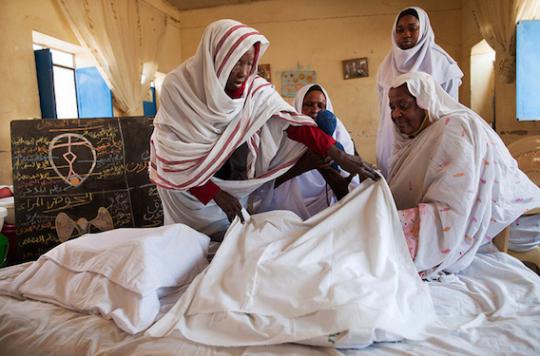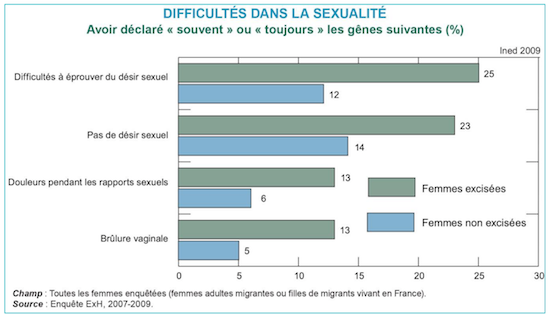More than 8,600 female genital mutilation were diagnosed in the UK in 2016. The practice remains too common despite the formal ban in many countries.

Despite the ban, the practices continue. In the UK, every hour a woman is treated for problems related to genital mutilation. An alarming figure put forward by Plan International UK, a charity which fights against these acts of another time. On the occasion of the international day against these practices, the mobilization is general. Because the laws may severely punish such acts, their application leaves much to be desired.
A heavy punishment
Last year, more than 8,600 female genital mutilation were spotted across the Channel within the National Health Service (NHS). However, the practice has been banned since 1985 in the country. While the members of Plan International UK welcome the global awareness, they also highlight the efforts that remain to be accomplished. Because the action is effective.
“A recent project in Mali reduced the prevalence of this practice by 10% in the areas where we worked, and four villages have completely banned it”, illustrates Tanya Barron, general manager of the organization. This work should, she said, be extended to British schools.
Britain is unfortunately not isolated when it comes to genital mutilation. In France, at least 53,000 women have to live with the consequences of this gesture. It is not for lack of strengthening the law. Since 2013, incitement to practice has also been punished with a heavy fine.
The perpetrators of the mutilations incur heavy penalties: a fine of 150,000 euros, accompanied by a prison sentence ranging from 10 years imprisonment to 30 years if the intervention resulted in the death of the victim. Prosecutions are possible until 20 after the majority of it, reminds the government site fight against violence against women.

Long-term consequences
These penalties are severe but justified in view of the physical and psychological consequences of genital mutilation. The National Institute for Demographic Studies has looked into the issue. The conclusions are cold in the back. Indeed, one in ten mutilated women say they feel pain during sexual intercourse.

Source : INED
The repercussions of excision or infibulation are felt on a daily basis. It is not uncommon for victims to have difficulty urinating or feel uncomfortable wearing clothes. Depression and other psychological disorders are also common. Reconstructive surgery is therefore of real interest (see box). But raising awareness among healthcare professionals is crucial. Because in the world, one in five mutilation is practiced by a person practicing in this sector.
Lyon repairs mutilated women
Excision involves removing part of the external genitalia of young girls. This act, banned in France, leaves consequences on the physical, psychological and sexual health of the victims. In France, several establishments offer reconstructive surgery. This is the case of the Lyon-Sud Hospital Center, which has offered care for around 8 years. Contact requests can be addressed to 04 26 73 96 24 from February 9. These operations have a major impact on the victims: 90% say they are satisfied with them. An exemplary role that the High Council for Equality wishes to strengthen. In a press release, the HCE invites France to “fully play its role as a place of asylum for minors threatened with excision”.
.













-1590362612.jpg)

